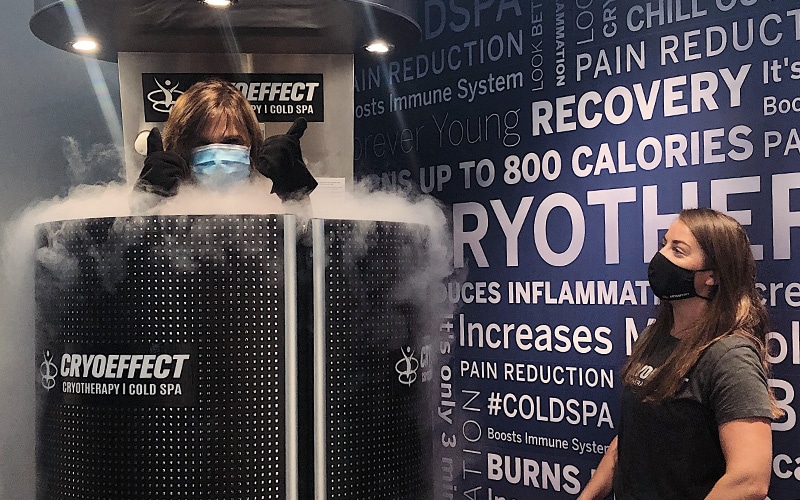Whole Body Cryotherapy (WBC) is mostly known to treat rheumatism, various sports injuries, and facilitate athletic recovery. However, WBC can also work beyond relieving pain and inflammation, helping over body’s overall health. In fact, studies are showing many noteworthy benefits of WBC on mental health when it comes to depression, anxiety, and sleep disorders. Studies are showing that there are both short term and long term benefits to utilizing WBC to treat or in addition to treatment for mental health.
The Numbers
A staggering 43.8 (1 in 5) adults suffer from any given mental or mood disorder a year. Given that rate, it is safe to say the majority of people are aware of the conventional treatments such as – but not limited to – medication, CBT therapy, somatic experience, herbs and supplements, lifestyle changes, and more. However, conventional therapies pose a problem for many individuals, especially when it comes to medication.
The Benefits
- Increased levels of endorphins: Endorphins are one of the chemicals that tell our brain we are feeling good. While the body naturally produces that hormone, sometimes individuals need an extra boost. Endorphins are powerfully released throughout the body after a cryotherapy session, and last longer than the treatment itself. As a result, Whole Body Cryotherapy is not only a potent pain reliever, it also directly and positively impacts our anxiety levels, sleep patterns, and mood.
- Decreased symptoms of depression: Studies have shown that WBC works as both an adjunct to conventional therapies to fight depression as well as having an overall positive effect on mental health.
- Decreased release of cortisol: Studies on the benefits of cryotherapy on your mental health have shown its effectiveness in decreasing the release of the stress hormone cortisol. In turn, this leads to immediate reduction in stress levels.
- Long-term stress and anxiety reduction: Routine use of WBC has potential long and short term benefits for overall stress reduction and management. Considerations are underway in the medical community to make cryotherapy a standard part of stress and anxiety treatment practices.
- Regulates Sleep Patterns: Another staggering statistic released by the American Sleep Association reports that 50-70 million Americans suffer from a sleep disorder. WBC improves sleep through the regulation of central activity levels, and also indirectly, e.g. through the elimination of pain, to improve sleep behavior. HUGE bonus: Regular use of WBC may reduce the need for sleep medication. The outcome? Resting the body as it was meant to – au naturel!
- Improved immune system and reduced risk of illnesses: Going back to one of the things WBC is most known for: fighting inflammation. There is growing evidence on many fronts that inflammation affects how we feel. This influence is exerted through many systems in the body, including the immune system, metabolism, sleep, stress responses, cognitive thinking, memory, expression, impulse control, mood, and clarity. While there remains a lot to be learned about what mechanisms of inflammation affects, the existence of a linkage between inflammation and mental health is indisputable. In short: inflammation puts individuals at risk for mood and anxiety disorders and WBC helps reduce inflammation..
Bottom line? WBC is proving to be, at a bare minimum, an adjunct treatment to anxiety and depression and at the highest level it is starting to show the long term benefits that it may suffice as treatment by itself for some individuals.
